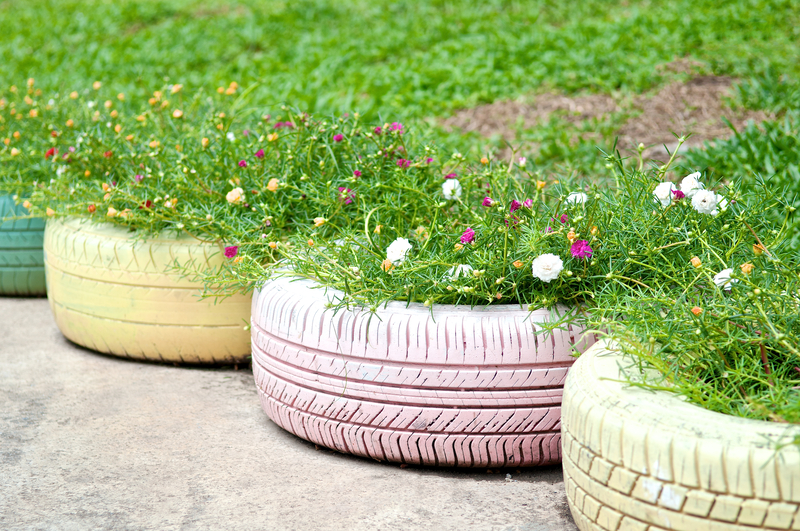A Comprehensive Look at Skip Hire Dos and Don'ts
Skip hire is a practical and effective way to manage waste for many projects, whether you're undergoing a home renovation, clearing out your garden, or tackling commercial construction work. However, to make the most of your skip hire experience, it's essential to understand the key practices that can make or break your project. In this comprehensive guide to skip hire dos and don'ts, we'll explore what you should - and should not - do when renting and using a skip. We'll also answer common questions, and provide valuable tips to ensure you remain compliant, cost-effective, and environmentally responsible.

Understanding Skip Hire: Why It Matters
At its core, skip hire refers to the process of renting a large waste container, or 'skip', designed to hold non-hazardous materials generated from different types of projects. Skips come in various sizes, from mini skips for small residential jobs to industrial-sized skips for major construction sites. Using a skip helps keep your site tidy, ensures easy waste removal, and supports recycling efforts. However, improper use can lead to fines, environmental issues, or extra charges, underscoring the importance of following best practices.
Top Skip Hire Dos: Best Practices for Successful Waste Management
Do: Choose the Right Size Skip
One of the most crucial skip hire tips is selecting the appropriate skip size for your project needs.
- Estimate Your Waste: Underestimating waste volume can result in overflow, while overestimating leads to unnecessary expenses.
- Common Sizes: Skips often come as 4, 6, 8, or 12-yard options. Speak with your supplier for recommendations based on your type of job.
- Top Tip: When in doubt, opt for the next larger size; overfilling skips can be hazardous and is often not allowed by hire companies.
Do: Confirm Permissions and Skip Placement
Correct skip placement avoids legal issues and inconvenience for you and your neighbours.
- If your skip will be placed on public property (like a road or verge), check if you need a skip permit from your local council.
- Private driveways typically do not require a permit, but you should ensure there is sufficient access for delivery and removal.
- Never obstruct driveways, access paths, or public highways as this could lead to fines or disputes.
Do: Load the Skip Safely and Evenly
- Distribute weight evenly to prevent the skip from becoming unstable.
- Break down bulky items to maximise space and reduce air pockets.
- Place heavier items at the bottom and lighter waste on top.
- Keep the skip level--do not load higher than the skip edges.
Do: Hire from Licensed and Reputable Companies
Always consult registered waste carriers or established skip hire providers.
- Licenced companies adhere to environmental and safety standards.
- Reputable suppliers offer advice, fast service, and transparent rates.
- Check for online reviews or industry accreditations before booking.
Do: Think Green - Recycle Where Possible
Responsible skip hire can support recycling efforts.
- Separate recyclable materials (such as metal, cardboard, or plastics) before adding them to the skip.
- Ask your supplier about their waste management and recycling policies.
Key Skip Hire Dos Checklist
- Book in advance to ensure skip availability.
- Follow local regulations and obtain necessary permits.
- Clear enough space for delivery and collection vehicles.
- Use reflective markings or safety lights at night if skip is on a public road.
- Communicate with neighbours if a skip is near shared spaces.
Essential Skip Hire Don'ts: What to Avoid
Don't: Overfill Your Skip
- Do not fill above the rim: Overfilling is both illegal and dangerous as it may result in unsafe transport.
- Excess waste may be left behind or incur extra charges for additional collections.
Don't: Dispose of Prohibited Items
Some items are strictly prohibited in skips due to legal and environmental regulations:
- Asbestos
- Batteries
- Tyres
- Fridges/freezers
- Paints, oils, and solvents
- Gas cylinders
- Electrical appliances (WEEE waste)
- Medical or hazardous waste
Always ask the skip hire company for a detailed list of restricted waste. Disposing of these can lead to hefty fines or legal issues.
Don't: Allow Others to Dump in Your Skip
- If your skip is placed publicly, it may attract illegal dumping from passers-by.
- Consider using a skip cover or locating the skip on private property where possible.
- Regularly check the skip's contents, especially if left unattended overnight.
Don't: Block Access or Emergency Routes
- Naturally, skips can be cumbersome. Never place them where they may block entryways, fire exits, or public rights of way.
- Consult your provider for the safest and most convenient placement.
Don't: Burn Waste Inside the Skip
- Never attempt to burn off excess rubbish. This is hazardous and can result in damage charges, health risks, and fines.
Skip Hire Don'ts at a Glance
- Don't dispose of hazardous materials without approval.
- Don't use the skip for commercial waste if you've hired it for domestic purposes, and vice versa.
- Never relocate the skip yourself--always contact your hire company.
- Don't ignore restrictions on weight and materials; these are vital for safety and compliance.
- Don't forget to arrange skip collection when your project ends.
How to Make the Most of Your Skip Hire
Planning and Preparation
Preparation is the cornerstone of efficient skip hire. Assess the type and volume of waste beforehand to avoid surprises, and communicate your needs clearly with the supplier.
- Create a waste management plan for larger projects.
- Schedule your delivery and collection dates to suit your project timeline.
- Inform your neighbours if you anticipate noise or disruption.
Maximising Space: Creative Loading Techniques
- Dismantle items (e.g., flat-pack furniture) to utilise skip space fully.
- Fill gaps with smaller debris to eliminate wasted voids.
- Stack similar items together for stability and maximum compression.
- Safety first: don't climb into the skip or stack items dangerously high.
Cost Saving Tips for Skip Hire
- Gather all waste in one area before the skip arrives, helping you gauge the right size and avoid overordering.
- Hire the skip only for the period you need--it's often cheaper to extend hire if needed than to pay for unused days.
- If disposing of bulky but light items (such as garden trimmings), a bigger skip may be more cost-effective than multiple trips to the dump.
- Share a skip with neighbours for shared projects to split costs and reduce single-use skip hire.
Frequently Asked Questions About Skip Hire Dos and Don'ts
What happens if I overfill my skip?
Most skip hire companies refuse to collect overloaded skips because of transport safety laws. You may be asked to remove excess waste or pay additional fees. Always stay within the fill line marked on the skip.
Can I put plasterboard or electrical items in a skip?
Rules change depending on your location and provider. Plasterboard, TVs, fridges, and electrical items are often prohibited or require separate collection. Always check with your hire company before disposal.
How do I get a skip permit?
If your skip will be kept on public property, your hire company normally arranges the permit for a fee. Apply in advance, as waiting for permission may delay your project.
Is it better to hire a skip or visit the tip?
For larger quantities of waste, skip hire is more efficient and cost-effective versus multiple tip runs. It also reduces the time and effort required while keeping the area tidy and compliant with local waste laws.

Environmental Responsibility: Skip Hire and Sustainability
Modern skip hire companies partner with recycling facilities and aim to minimise landfill waste. When you choose a green skip hire provider, most materials--including soil, wood, metals, plastics, and concrete--are sent for recycling or reclamation.
- Ask your provider: What percentage of waste is recycled?
- Separate waste at source: This makes recycling easier and more effective.
By following sustainable skip hire practices, you help reduce environmental impact and encourage responsible waste management in your community.
Summary: Skip Hire Dos and Don'ts for Hassle-Free Waste Removal
Skip hire is a fantastic way to manage waste efficiently when you follow a few key dos and don'ts:
- Do select the right skip size, comply with permits, load waste safely, recycle responsibly, and follow all local rules.
- Don't overfill skips, dispose of prohibited waste, block access routes, or allow others to dump illegally in your skip.
Choosing a reputable skip hire company and planning ahead will ensure a smooth, stress-free experience--and help you do your bit for the environment.
Are you ready to book a skip? Use our detailed guide to make your next skip hire project safe, legal, and efficient!
```